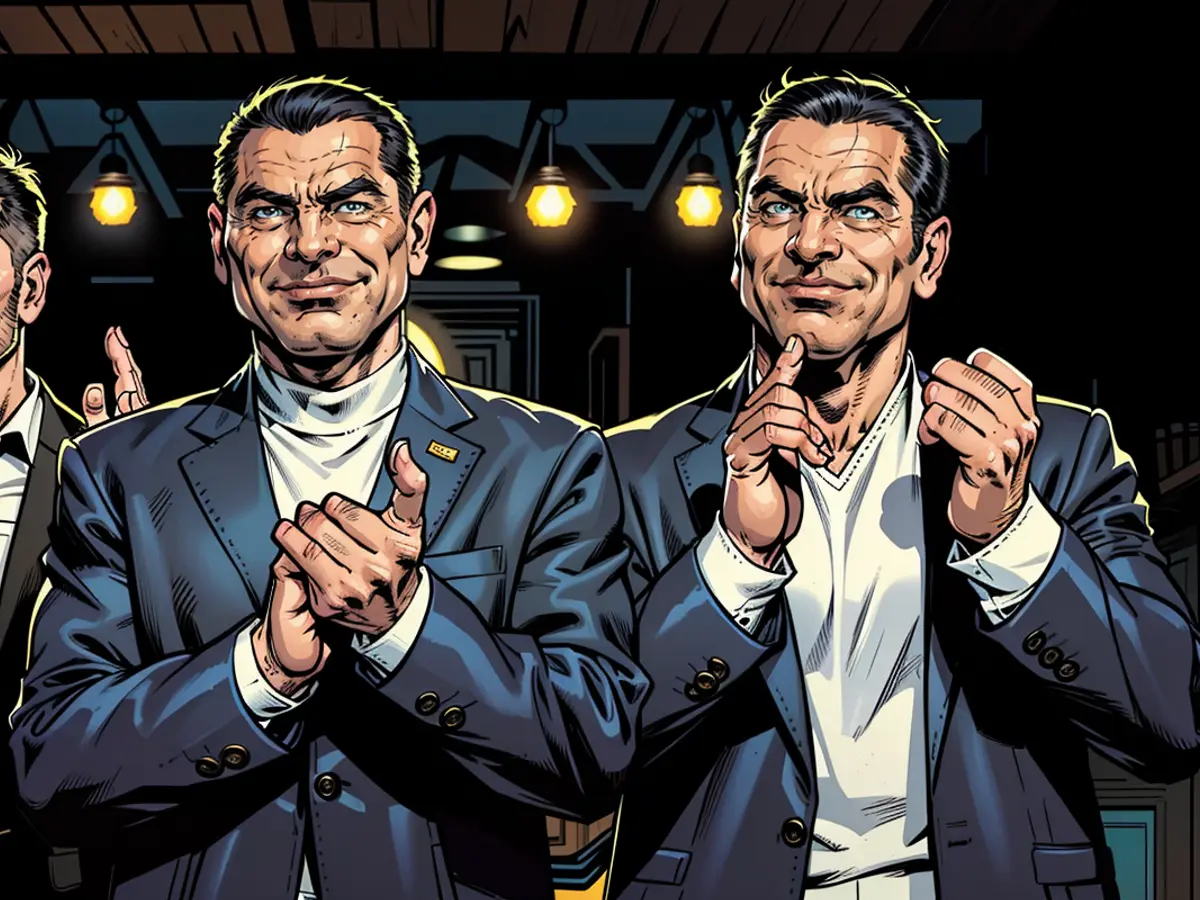Only one third of SPD members support Scholz as chancellor candidate
Members of the SPD are divided over who they should nominate as chancellor candidate for the Bundestag election next year. Chancellor Scholz is also becoming increasingly unpopular within his own party. In a survey, only 33 percent of SPD members support him as their party's chancellor candidate.
According to a survey by Forsa for the Redaktionsnetzwerk Deutschland (RND), one-third of SPD members support Defense Minister Boris Pistorius as their party's chancellor candidate next year, according to a survey. Eight percent wish for Co-Party Leader Lars Klingbeil.
Chancellor Scholz, despite his dwindling popularity ratings for the SPD and the coalition as a whole, has repeatedly claimed the SPD's nomination for chancellor. Many leading SPD members support him in this. Defense Minister Pistorius denied rumors that he harbors ambitions for a chancellor candidacy next year.
Great Doubts, Especially in Eastern Germany
Two-thirds of the interviewees do not believe that the SPD will be the strongest party in 2025, as at the 2021 Bundestag election, if CDU leader Friedrich Merz is the Union's chancellor candidate. Skepticism is particularly high in Eastern Germany, with 71 percent.
About half of the interviewees expect a result of at least 15 to 19 percent for the SPD next year, while 37 percent trust the party with a result between 20 and 25 percent. Only about one in ten members expect more than 25 percent.
55 percent of SPD members are satisfied with Olaf Scholz's work as chancellor. Co-Party Leader Lars Klingbeil is more popular within the SPD, with 79 percent expressing satisfaction with his work. SPD General Secretary Kevin Kühnert is also more popular than Scholz among SPD politicians, with 65 percent satisfaction.
Forsa interviewed 1,001 SPD members between July 8 and 12. According to the survey, they represent a cross-section of the SPD membership.
The Federal Chancellery, led by Chancellor Scholz, is currently facing internal challenges within the SPD as its members are divided over the party's chancellor candidate for the upcoming Bundestag elections. The trend among SPD members suggests that Defense Minister Boris Pistorius and Co-Party Leader Lars Klingbeil are gaining support as potential chancellor candidates, while Scholz's popularity is dwindling.
Friedrich Merz, the CDU leader, is being considered as a potential chancellor candidate for the Union, and a survey suggests that two-thirds of SPD members do not believe the party will emerge as the strongest in 2025 with Merz at the helm. Skepticism is particularly high in Eastern Germany.
The survey also revealed that about half of the interviewees expect a result between 15 to 19 percent for the SPD next year, while one-third trust the party with a result between 20 to 25 percent. Only about one in ten members expect more than 25 percent for the SPD.
Despite the internal divisions and waning popularity, Chancellor Scholz has repeatedly claimed the SPD's nomination for chancellor, with many leading SPD members supporting him. However, other chancellor candidates, such as Defense Minister Pistorius and Co-Party Leader Klingbeil, are gaining ground among the party's members.
The survey, conducted by Forsa between July 8 and 12, interviewed 1,001 SPD members and is considered a cross-section of the SPD membership. The trend in the survey suggests that the Young Socialists and other chancellor candidates may play a significant role in the SPD's elections strategy in the coming year.








